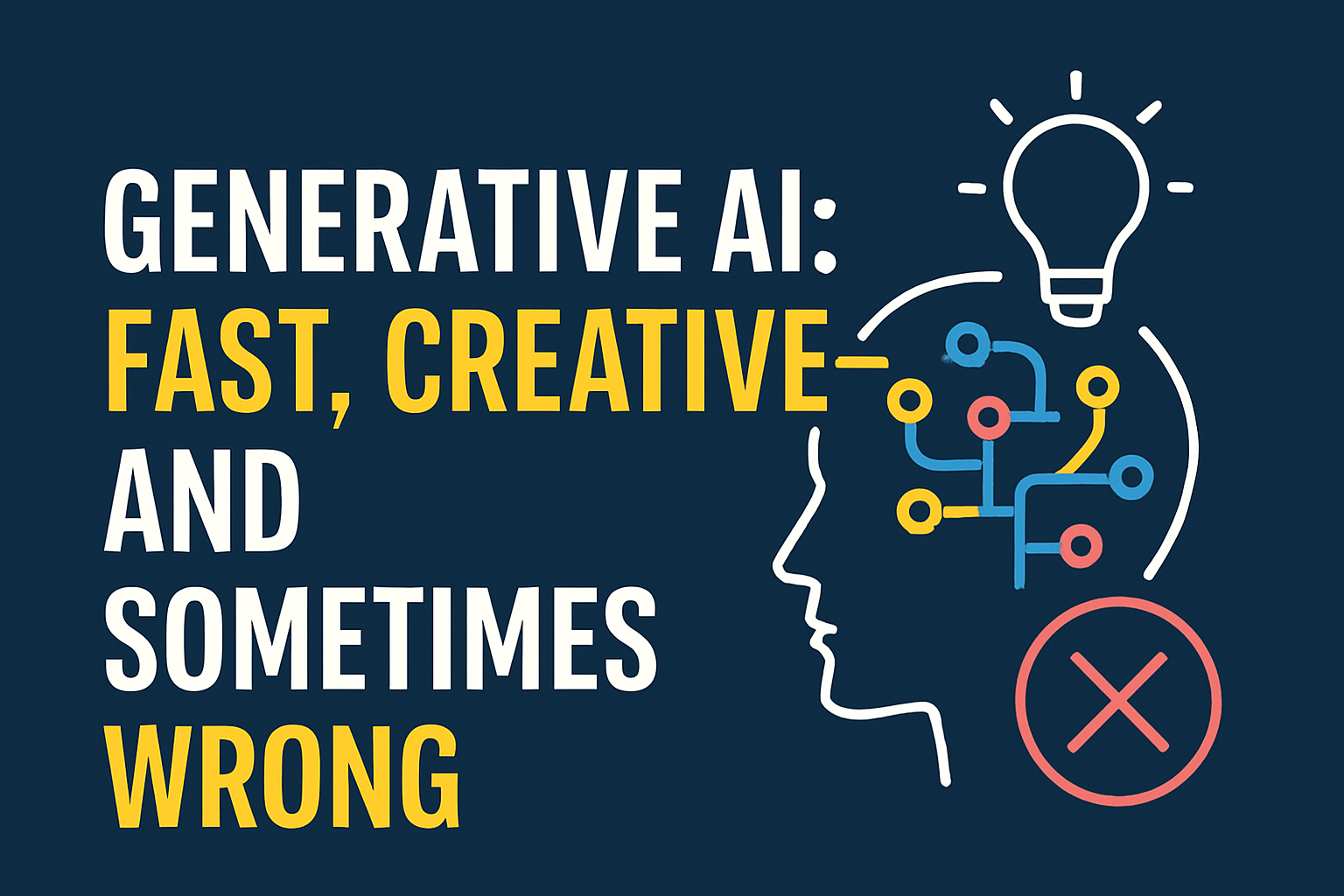AI is Smart and Creative But
Don’t Trust It Blindly
Generative artificial intelligence (AI)
offers remarkable advantages in terms of speed, creativity, and efficiency. At its core, this technology is capable of producing entirely new content—including text, images, and audio—by recognising and replicating patterns that exist within its training data. For businesses, researchers, and individuals, this can translate into significant time savings and the rapid generation of new ideas or drafts. A single prompt can yield a first draft of an article, a visual design, or even a piece of music in seconds. The ability to summarise large volumes of information, suggest alternative perspectives, or assist in brainstorming makes generative AI an attractive tool for productivity and innovation.
Yet, despite these strengths,
outputs from AI systems are not inherently reliable. The data used to train such models is drawn from vast combinations of public and private sources. These datasets may be incomplete, outdated, or reflect cultural and regional biases. As a result, AI-generated content can sometimes be misleading, overly narrow in scope, or influenced by unverified assumptions embedded within the training material. In certain situations, the system may generate responses that appear highly confident yet are factually false—for example, invented statistics, fabricated legal precedents, or even references to medical treatments that do not exist.
These risks arise because AI models do not actually verify facts
instead, they rely on predicting the most likely sequence of words, based on statistical probabilities learned during training. This prediction process makes the system skilled at imitating human expression but prone to producing errors such as incorrect dates, misattributed quotations, or references to legislation and publications that were never issued. Compounding this limitation is the fact that the model’s knowledge is fixed at the point in time when its training dataset was last updated. Without access to live information, AI cannot reflect changes in laws, regulations, technological standards, or financial markets. Moreover, training datasets may include copyrighted material, and in some cases, user interactions with the system may later be incorporated into further model development—raising ethical and privacy concerns.
Generative AI should be regarded as an assistant rather than an authority
it performs best when applied to relatively static and well-established subject areas such as mathematics, geography, or historical facts. In contrast, it is far less dependable in dynamic fields such as law, healthcare, or financial advice, where accuracy, timeliness, and accountability are essential. While AI can help draft documents, prepare summaries, generate comparisons, or support idea development, it should never be relied upon exclusively for tasks that carry legal, medical, or financial consequences.
Every AI-generated output should be checked and verified against authoritative sources
these include official government websites, regulatory publications, and peer-reviewed academic research. In professional or high-stakes contexts, human expertise must remain the final safeguard. Generative AI is an extraordinary tool for augmenting human capability, but it is not a substitute for critical thinking, due diligence, or professional judgment.
